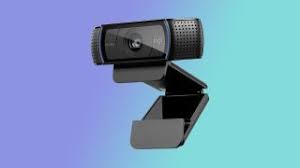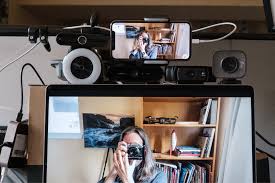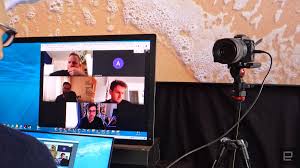June 02, 2021
How Camera Capture Image



I hope these explanations are useful and will help you enjoy capturing photos with your camera; But perhaps, more importantly, let others enjoy your photography. And for any questions about my blog how the camera captures the image visit this article.
The development of web cameras is one of the latest developments in digital photography. Computers, tablets and smartphones can use the webcam capability to record digital video as well as perform webcam tests. Webcams can be connected to a smartphone, tablet, laptop or desktop computer. They are not difficult to use, but new users may find them difficult at first.
Almost all digital cameras today have a touch-sensitive screen or slider, and the user must first press the shutter button before launching the video recording application. A user launches the camera by clicking on an icon, and the computer's webcam captures the image. In some digital cameras, the user can even select the subject, rather than only the icon. As soon as the image is captured, it is stored in the camera's memory, where it can be viewed later or saved to the camera. A standard web connection is used to send the photo to the user's computer and the Internet.
A method of capturing webcam images
In addition to capturing images, you can save the entire file to a diskette, memory stick, USB drive, or flash drive. The photographer does this by clicking the "copy" button in the top left corner of the screen. In the dialog box that appears, they drag the cursor over the area that reads "Copy as...". Clicking the "copy" button will enable the user to copy the image file to the location of their choice.
The image can be shared in many ways, such as through email, instant messaging, and social networking sites. The camera doesn't store photos in its memory. The photo must therefore be deleted when not in use. There is no way to permanently edit the photo.
Webcams have touch screens that allow users to interact with the device while still maintaining focus on their current tasks. Since they no longer need to take a picture, they will have to be more careful when they launch the camera. Now, after taking an image, the user can share it or have the camera send it to their computer.
A user must click the mouse to select what type of activity can be recorded by the camera. In just a few seconds, the user can launch Camera1 and choose an activity before selecting JPEG or a Web-accessible format to save the image. Additionally, users can use the camera to take a full-resolution JPEG image and then compress it with software to transfer it to their computer.
Multi-image storage
Multiple copies of the same image can be stored in the camera. Once the image has been saved, the copy will not be visible unless it has been manually deleted from the camera. In the case of overwriting, if a user takes another image while the last image is still saved, the previous image will be overwritten.
When taking a picture with the camera, the user must click the "open" button available in the bottom right corner of the screen. Afterward, users can choose which image type they want to capture. For example, they can choose between GIF, JPEG, PNG, or TIFF. By pressing the shutter button, the photo will be taken.
With the web camera, the user can move the camera around their head, face, shoulders, and chest. While the clickable area on the screen is active, the camera stays pointed at the user. To take a picture of the selected area, the user must continue to click on it. In any case, the user is responsible for deleting the captured image as soon as they are done viewing it.
In the same session, the camera can capture several images. The user should delete an image at the beginning of the session if they decide to do so. Unless the images are saved, they will be overwritten.
In addition, all devices can automatically capture images. To record, users must click the 'record' button on all devices while simultaneously clicking 'play'. When the camera is pressed against the screen, the user must select the "All Devices" option and then choose the camera. On all devices, click the "record" button again.
In addition, all devices can automatically capture images. To record, users must click the 'record' button on all devices while simultaneously clicking 'play'. When the camera is pressed against the screen, the user must select the "All Devices" option and then choose the camera. On all devices, click the "record" button again.
Having learned how to take a good photo with your camera, you can use this information to take better pictures. With just a few clicks, you can improve your images.
FAQ :
1) How are images captured and created in the camera?
An object that reflects light after striking it reflects light after it strikes it. When the light rays pass through the lens of the eye, they form a specific angle, and the image is formed on the retina, which is the backside of the wall. Inverting the image creates an inverted image.
2) Does the camera add weight to the device?
According to Gizmodo, long focal lengths can flatten out your features, making you appear bigger. Then, of course, there's barrel distortion, when straight lines appear curved due to a camera lens. You may notice that this enhances your appearance by plumping you up.
3) Do cameras make you look worse?
Our faces do appear distorted when we look at them through our phones. There are some differences between how you appear on the camera of your phone and how you appear in person. For example, we tend to appear larger on selfies when we place the camera too close to our face.
4) How do I add a camera to my image capture?
- Using Android Devices on Mac (Image Capture App)
- Connect your Mac to the USB cable.
- Connect a USB cable to your Android device.
- Drag the Notification Bar down on your Android device.
- Click the "Connected as Mobile Device†option.
- Click the "Camera (PTP)" option when the "USB Computer
- Connection" screen appears.
5)How do I scan with Apple Image Capture?
- Scan images in Image Capture on Mac
- Select the scanner from the Devices or Shared list in the Image Capture app on your Mac. In cases where you do not see your scanner listed, see Set up a scanner.
- Scanned your images.
In Conclusion:
I hope these explanations are useful and will help you enjoy capturing photos with your camera; But perhaps, more importantly, let others enjoy your photography. And for any questions about my blog how the camera captures the image visit this article.
Posted by: Karen Gibbs1 at
06:17 PM
| No Comments
| Add Comment
Post contains 1049 words, total size 10 kb.
<< Page 1 of 1 >>
15kb generated in CPU 0.007, elapsed 0.024 seconds.
30 queries taking 0.0201 seconds, 40 records returned.
Powered by Minx 1.1.6c-pink.
30 queries taking 0.0201 seconds, 40 records returned.
Powered by Minx 1.1.6c-pink.









